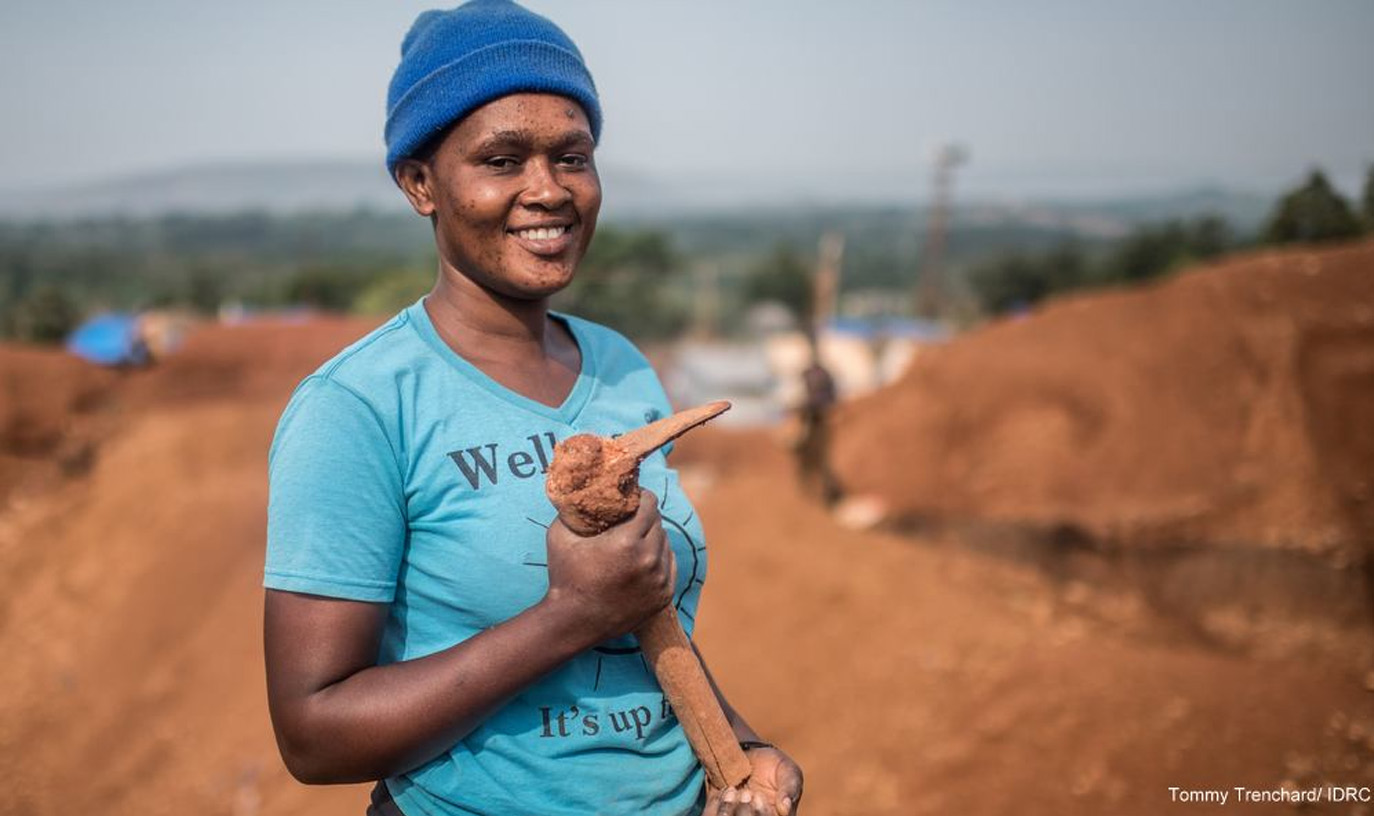Policymakers from the Rwanda Mines, Petroleum and Gas Board, private sector, and civil society are meeting to address challenges and opportunities for women in artisanal and small-scale mining sector.
Kigali, Rwanda / December 6, 2017
Researchers are holding a conference today to present their research findings on the challenges women face in the artisanal and small-scale mining sector and opportunities for their empowerment.
The three-year research project led by IMPACT (formerly Partnership Africa Canada), Canada’s Carleton University, the Development Research and Social Policy Analysis Centre (DRASPAC) and Women in/and Mining Organisation (WIAMO), has explored women’s livelihoods in the artisanal mining of 3Ts (tin, tantalum, tungsten) and gold within Rwanda, Democratic Republic of Congo, and Uganda.
Through participant observation, surveys, focus groups, life histories, and interviews, the project studied dynamics at two mines in Rwanda—a tungsten mine in Northern Province and a tin/tantalum mine in Southern Province.
Policymakers from the Rwanda Mines, Petroleum and Gas Board, Ministries of Local Government, Ministry of Gender and Family Promotion, women and men miners, private sector, and civil society attending the conference will be presented with how gender inequality limits women’s contributions in the artisanal and small scale mining sector and their potential as economic and social actors.
“Our research shows that women have an important contribution to the artisanal and small-scale mining sector. But they also face many barriers that need to be addressed,” said Gisèle Eva Côté, the Coordinator of the research in DRC and Rwanda for IMPACT.
Researchers found that women’s voices are not represented in the country’s mining laws and policies. Women also face inequality at the mine sites—preventing them from taking on higher paying tasks or more senior positions. Women told researchers that their technical capacity and strength have been questioned due to their gender.
Researchers recommend supporting women’s access to credit, which would allow entrepreneurial activities at the mine sites.
This project is part of the Growth and Economic Opportunities for Women (GrOW) program, jointly funded by the UK’s Department for International Development (DfID), the William and Flora Hewlett Foundation, and Canada’s International Development Research Centre (IDRC).
Full findings and recommendations for Rwanda
– 30 –
Media contact:
Zuzia Danielski, Communications Director
+1-613-263-0661
zdanielski@impacttransform.org
IMPACT—formerly Partnership Africa Canada—transforms how natural resources are managed in areas where security and human rights are at risk. We investigate and develop approaches for natural resources to improve security, development, and equality. We are an independent non-profit, collaborating with local partners for lasting change.
Photo by Tommy Trenchard/IDRC

